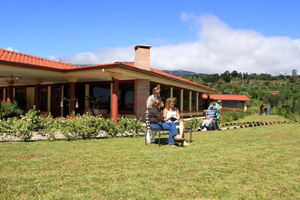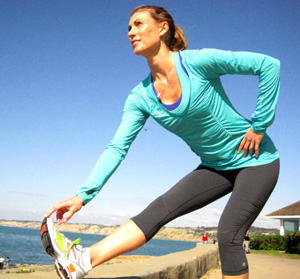
The pura vida-living, Imperial beer-drinking, gallopinto-eating Central American country of Costa Rica continues to grow as a medical tourism destination.
With one of the longest life expectancies in the hemisphere and ranked the happiest country on the planet by the New Economics Foundation’s Happy Planet Index, Costa Rica has tremendous appeal for those looking to combine quality, affordable medical care with a tropical vacation. The country’s proximity to the United States, well-trained health professionals and three hospitals accredited by the Joint Commission International (JCI) – an organization that develops health care standards around the world – make it an ideal destination for patients seeking quality care (TT, Jan. 28). Last year alone, an estimated 100,000 traveled to Costa Rica for medical tourism, up from 60,000 the year before.
Luis Diego Osborne, vice president of the Council for International Promotion of Costa Rica Medicine (PROMED), doesn’t expect interest to slow.
“The medical tourism market here is becoming more consolidated,” he said. “More providers are becoming accredited, more relationships are being formed with companies in the health industry in the United States, Canada and Europe, and, as prices rise in developed countries, there’s more interest in seeking care abroad.”
Yet traveling for a health procedure is not as easy as selecting a destination and pressing “purchase.” If you are considering going abroad, medical tourism experts offer the following five tips.
1. Get informed. Offerings for medical procedures abroad are endless, and an initial Google search will pull up wide-ranging prices, packages and standards of service. Some of the many questions you should ask: How far are you willing to travel for care? How much time can you take off? Is there anything you want to see while you are visiting the country? What kind of aftercare will you receive? How much will be done for you and how often will you be left on your own? Are you protected if something goes wrong?
Ronald García, owner of Hotel Refugio de Montaña (www.refugiodemontana.com), a recovery center in San Pedro de Poás, northwest of San José, advised, “Collect as much information as possible. The best thing you can do is compare prices and be clear as to exactly what is being offered.”
2. Look for the seal of appro2. Look for the seal of approval. Not all health care providers offer the same guarantee of service. A handful of health institutions and individual doctors have jumped through all the hoops and achieved accreditation. Osborne recommends looking for the PROMED stamp or that of the American Association for Accreditation of Ambulatory Surgery Facilities (AAAASF). If the facility or professional you are interested in doesn’t have any accreditation, the best you can do is ask for and check references.val. Not all health care providers offer the same guarantee of service. A handful of health institutions and individual doctors have jumped through all the hoops and achieved accreditation. Osborne recommends looking for the PROMED stamp or that of the American Association for Accreditation of Ambulatory Surgery Facilities (AAAASF). If the facility or professional you are interested in doesn’t have any accreditation, the best you can do is ask for and check references.
3. Know where you are staying. In his two years in medical tourism, García has noted that people spend an exhaustive amount of time looking for a clinic or surgeon and almost no time researching where they will go when they are done. “Post-procedure care is a fundamental part of the experience,” said García, whose hotel offers all-inclusive amenities such as medical care, transportation and meals.
 By: Wendy Betterini
By: Wendy Betterini
What would you consider to be your most precious possession? Your home? Car? Book collection? What about … your body? It is surely your most precious possession because without it, you wouldn’t be here.
How well do you care for your body? Do you exercise every day, eat healthful foods, drink enough water, get adequate sleep? Don’t worry, I’m not going to turn this into a big sermon, because I’ve been just as guilty of not giving my body the care and attention it deserves. A large majority of us are. We live in an age of high stress, fast pace, and abundant convenience foods. For those of us who only need to walk a few paces from our desk to the kitchen, the temptation for snacking is even greater. Who has time to exercise and prepare balanced meals?
However, it’s important to realize that neglecting our physical well-being can profoundly affect us mentally and spiritually. The Mind/Body/Spirit connection is strong. If we neglect one area, the others will suffer also. The goal should be to achieve a nice, even balance between all three. I’m learning that it’s not as hard as it seems. It just takes a little effort.
My biggest mistake over the past several years was believing that proper care of my body would take a massive amount of time. “I’m too busy to exercise. I don’t have time to cook decent meals, I’ll just grab something quick. I have too much to do, so I can’t get a full night’s sleep.” But by shunning my physical well-being, I found myself not able to be as productive and efficient in other areas. I had little energy, I couldn’t concentrate, and generally felt rotten all the time.
Caring for our bodies doesn’t have to take a lot of time. In fact, by focusing more attention on my physical health lately, I would venture to say that I’m gaining time, because my focus and energy level are so much better, and I get a lot more done during the day. I also sleep better at night, another bonus!
You might be wondering just how much time and effort is required? Here are the things I’ve been doing for myself recently:
Exercise – For me, that was the biggest obstacle because I tend to get lazy. 😉 Once I sit down at my desk, I’m glued to it all day. If I don’t exercise first thing in the morning, I will keep putting it off. So I started doing my workout immediately after I wake up. I spend about 30-60 minutes on aerobic activity (walking), and some light weight training. I had to push myself at first, but now that I’m getting into the habit I’m feeling stronger and even starting to look forward to my workouts every morning. If you tend to procrastinate about exercise like I did, try making it your first priority when you wake up, and then you have the rest of the day to do whatever else needs to be done.
 By: Powelljohny
By: Powelljohny
Each of us wants to live independent and active life at home. And, we all agree that Health concerns and others special needs are unavoidable part of life. But, many a times, rigorous daily activities, physical and mental stress loosen our confidence. Eventually it degrades quality of life, reduce fitness and increase disease symptoms. Wellness centers have a contributory remedial role over here.
Let us see how do wellness programs give new birth to our disastrous lives? What they have to offer for individuals and groups? What are the benefits of working with wellness trainers or doctors?
Wellness centers are more than mere fitness centers. The training programs and inspirational activities, they conduct are of immense help and need-specific. Whether it is physical weakness, aging problem or mental issues, these wellness coaching classes render all around solutions.
Let us understand how such rejuvenating program works for both individual and groups.
A. For individual:
Wellness trainers can accommodate particular schedule for personalized guidance. The professionals will keep a close eye on essential factors like health improvements, goal attainment, varieties, and discipline.

 By: Wendy Betterini
By: Wendy Betterini By: Powelljohny
By: Powelljohny